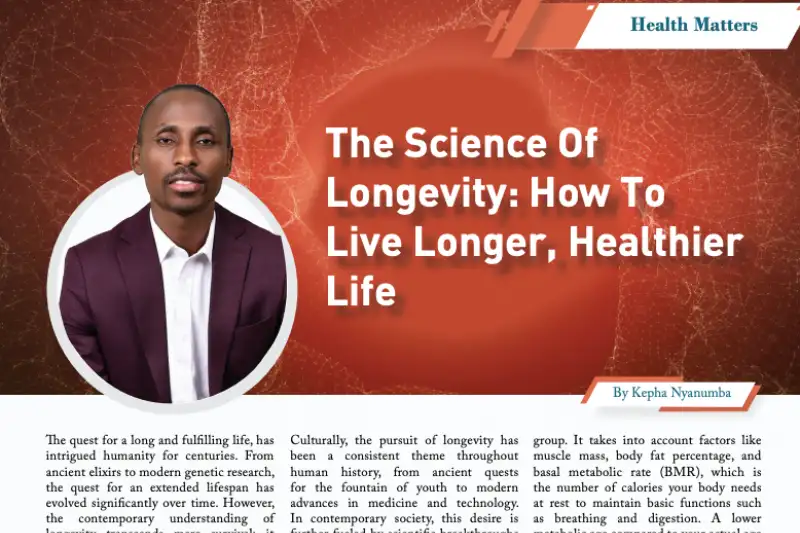The Science Of Longevity: How To Live Longer, Healthier Life
By Kepha Nyanumba
The quest for a long and fulfilling life has intrigued humanity for centuries. From ancient elixirs to modern genetic research, the quest for an extended lifespan has evolved significantly over time. However, the contemporary understanding of longevity transcends mere survival; it encompasses the quality of life, aiming to optimize physical, mental, and emotional well-being in the later years of life.
This desire for longevity is deeply ingrained in our nature, shaped by biological, psychological, and cultural factors. At its core, this longing reflects the fundamental human instinct for survival, which has evolved over millennia. Our biological drive compels us to avoid threats and seek conditions that enhance our well-being. This desire to live longer is not just about adding years to life but ensuring that those years are marked by vitality and good health.
Culturally, the pursuit of longevity has been a consistent theme throughout human history, from ancient quests for the fountain of youth to modern advances in medicine and technology. In contemporary society, this desire is further fueled by scientific breakthroughs that promise to extend life expectancy and enhance quality of life. People are drawn to advancements in healthcare, nutrition, and fitness as means to push the boundaries of aging. Moreover, as societal values have shifted towards an emphasis on personal fulfillment and well-being, the desire for a long, healthy life has become a central goal for many.
Metabolic Age and Longevity
Metabolic age is a concept used to describe how efficiently your body is functioning compared to the average performance of others within your chronological age group. It takes into account factors like muscle mass, body fat percentage, and basal metabolic rate (BMR), which is the number of calories your body needs at rest to maintain basic functions such as breathing and digestion. A lower metabolic age compared to your actual age indicates that your body is functioning at a higher level, which often correlates with better overall health and fitness.
Longevity refers to the length of an individual’s life, especially when it extends beyond the average lifespan. The relationship between metabolic age and longevity is significant because of the following factors:
-
Healthier Body Composition: A lower metabolic age is often associated with a healthier body composition, which includes lower fat levels and higher muscle mass. This balance can contribute to a longer life by reducing risks associated with obesity, heart disease, and other chronic conditions.
-
Efficient Metabolism: People with lower metabolic ages tend to have a more efficient metabolism, meaning they burn calories more effectively at rest. An efficient metabolism can help maintain healthy body weight, manage blood sugar levels, and decrease the likelihood of developing metabolic disorders, like diabetes, which are linked to reduced longevity.
-
Nutrient-Rich Diet: A diet rich in essential nutrients, healthy fats, and low in processed foods improves metabolic age by promoting efficient cellular function and reducing inflammation. This positively impacts overall health and longevity.
Health Matters
Longevity is not merely about extending the number of years we live, but about enhancing the quality of life throughout those years. It involves a holistic approach that focuses on optimizing physical, mental, and emotional well-being, particularly in the later stages of life.

